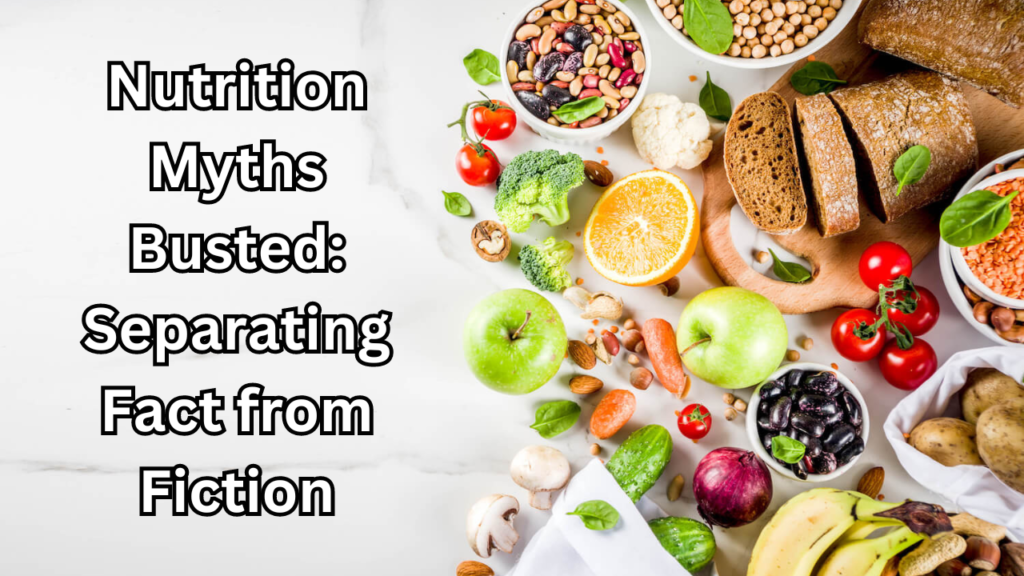
Table of Contents
In the age of information, nutrition advice is abundant and often conflicting. From trendy diets to sensational headlines, it can be challenging to discern fact from fiction. Let’s debunk some common nutrition myths and clarify what really matters for a healthy diet.
Nutrition Make You Gain Weight
Fact: Carbohydrates are often vilified in diet culture, but they are a crucial energy source for your body. Carbs are broken down into glucose, which fuels your brain, muscles, and other organs. The key is choosing the right type of carbohydrates—opt for whole grains, fruits, and vegetables rather than refined carbs and sugary foods. Moderation and balance are essential, rather than demonizing any particular macronutrient.
Fat Is Bad for You
Fact: Not all fats are created equal. While it’s true that trans fats and excessive saturated fats can be harmful, healthy fats, such as those found in avocados, nuts, seeds, and olive oil, are beneficial. They provide essential fatty acids and help with nutrient absorption. A balanced diet includes healthy fats and keeps them in moderation.
Eating Late at Night Leads to Weight Gain
Fact: The timing of your meals is less important than the overall calorie intake and quality of your diet. Weight gain is a result of consuming more calories than you expend, regardless of when you eat. However, eating large meals close to bedtime might disrupt sleep for some people. Listen to your body and choose balanced immune system foods throughout the day.
All “Natural” Foods Are Healthy
Fact: The term “natural” can be misleading. Natural foods can still be high in sugar, salt, or unhealthy fats. For example, natural fruit juices can be high in added sugars. It’s important to look beyond labels and focus on the nutritional content of foods. Whole, minimally processed foods are generally the best choice.
Supplements Can Replace a Balanced Diet
Fact: Supplements can be helpful in filling specific nutritional gaps, but they cannot replace a well-rounded diet. Whole foods provide a complex array of nutrients that work synergistically to support health. Relying solely on supplements without a balanced diet can lead to imbalances and deficiencies.
Gluten-Free Is Always Healthier
Fact: Gluten-free products are not inherently healthier than their gluten-containing counterparts. Many gluten-free foods are highly processed and can be lower in fiber and nutrients. Unless you have celiac disease or a gluten sensitivity, there’s no need to avoid gluten. Focus on whole foods and a balanced diet for optimal health.
Detox Diets Cleanse Your Body
Fact: Your body has its own built-in detoxification systems—the liver, kidneys, and digestive system. There is no scientific evidence that detox diets or cleanses improve these processes. Instead, focus on eating a balanced diet rich in fruits, vegetables, and water to support your body’s natural detoxification mechanisms.
Skipping Meals Helps with Weight Loss
Fact: Skipping meals can lead to overeating later and disrupt your metabolism. Regular, balanced meals help regulate blood sugar levels and prevent excessive hunger. Eating small, frequent meals can be a better strategy for managing weight and supporting overall health.
Conclusion
Nutrition can be complex, but debunking these common myths can help simplify the process. The foundation of a healthy diet is balance managing stress, variety, and moderation. By focusing on whole foods and listening to your body’s needs, you can make informed choices that support your well-being. Remember, there is no one-size-fits-all approach—what works for one person may not work for another. Always consider consulting a registered dietitian or nutritionist for personalized advice.
